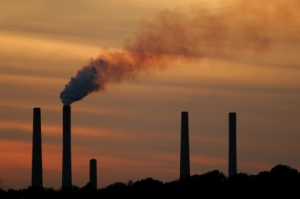
The emissions trading scheme will lead to further job losses in regional communities, according to mining town mayors. Photo: iStock.
By Angela Dorizas
The mayor of Newcastle in New South Wales and the mayors of Gladstone and Mount Isa in Queensland have put pressure on the Rudd Government to delay its emissions trading scheme (ETS), warning that it will negatively impact on regional economies.
Newcastle Lord Mayor John Tate said he was “firmly supportive” of measures to address climate change, but urged the Federal Government to delay the ETS for the sake of local jobs.
“I don’ think any business can stand costs in addition to what they’ve got at the moment given the economic climate,” Cr Tate told GovernmentNews.
“It’s hard enough for people to keep their doors open and we know that’s going to get worse.
“It makes sense to me to be putting a pause on the ETS at least until we get through what we now know is going to be a worldwide recession.”
He said the more immediate need of regional Australia was to “keep people in jobs so that kids can have a roof over their head and food on their table.”
A recent study commissioned by the Hunter Business Chamber and undertaken by the Hunter Valley Research Foundation estimated that more than 30,000 local residents worked in 26 emission-intensive industries, including aluminium, electricity supply, iron and steel production, and black coal.
Cr Tate said international corporations were likely to “pull the plug” on operations in the region if the ETS was implemented during a recession.
“This is not just the mining industry – this is regional Australia that’s being affected. Regional Australia is more than coal mining,” Cr Tate said.
“There’s talk of one of the aluminium smelters here being under so much pressure it will close.”
Cr Tate warned that the closure of the smelter would lead to hundreds of job losses and indirectly affect local businesses and contractors servicing the aluminium industry.
The mayor of the industrial town of Gladstone is also concerned about the effects of the ETS on local jobs.
Mayor George Creed said major employers, such as the aluminium industry, were already cutting jobs.
“They’re all doing it tough at the moment with the global economic downturn and they’re all shedding jobs,” Cr Creed told GovernmentNews.
“Let’s not put burdens on these people at this time. I do realise that in the long run we do have to control emissions, but we are doing it tough and we should not be jeopardising our exports and our jobs at this time.”
Mayor of Mt Isa John Molony has also warned that the jobs of 4,000 people and about 300 apprentices employed in local mines were under threat.
Within the Senate debate continues over the economic impacts of the ETS.
Earlier this week, Greens senator Christine Milne accused mining corporation Xstrata of carrying out a “cynical political exercise” in speculating over job losses.
“It is just like big tobacco standing in a cancer ward telling patients they should die in order to maintain jobs in the tobacco industry,” she said.
“No group of people had been better treated under the planned ETS than the coal industry.”
Federal Minister for Climate Change Senator Penny Wong warned that if the ETS was delayed more jobs would be lost.
“Those opposite do not wish to talk about the jobs that will be lost if we do not act on climate change in this country,” she said during Senate Question Time.
“They are happy to continue to duck that challenge as they did for 12 years in government. Second, those opposite do not want to talk about the jobs foregone.”
Comment below to have your say on this story.
If you have a news story or tip-off, get in touch at editorial@governmentnews.com.au.
Sign up to the Government News newsletter
